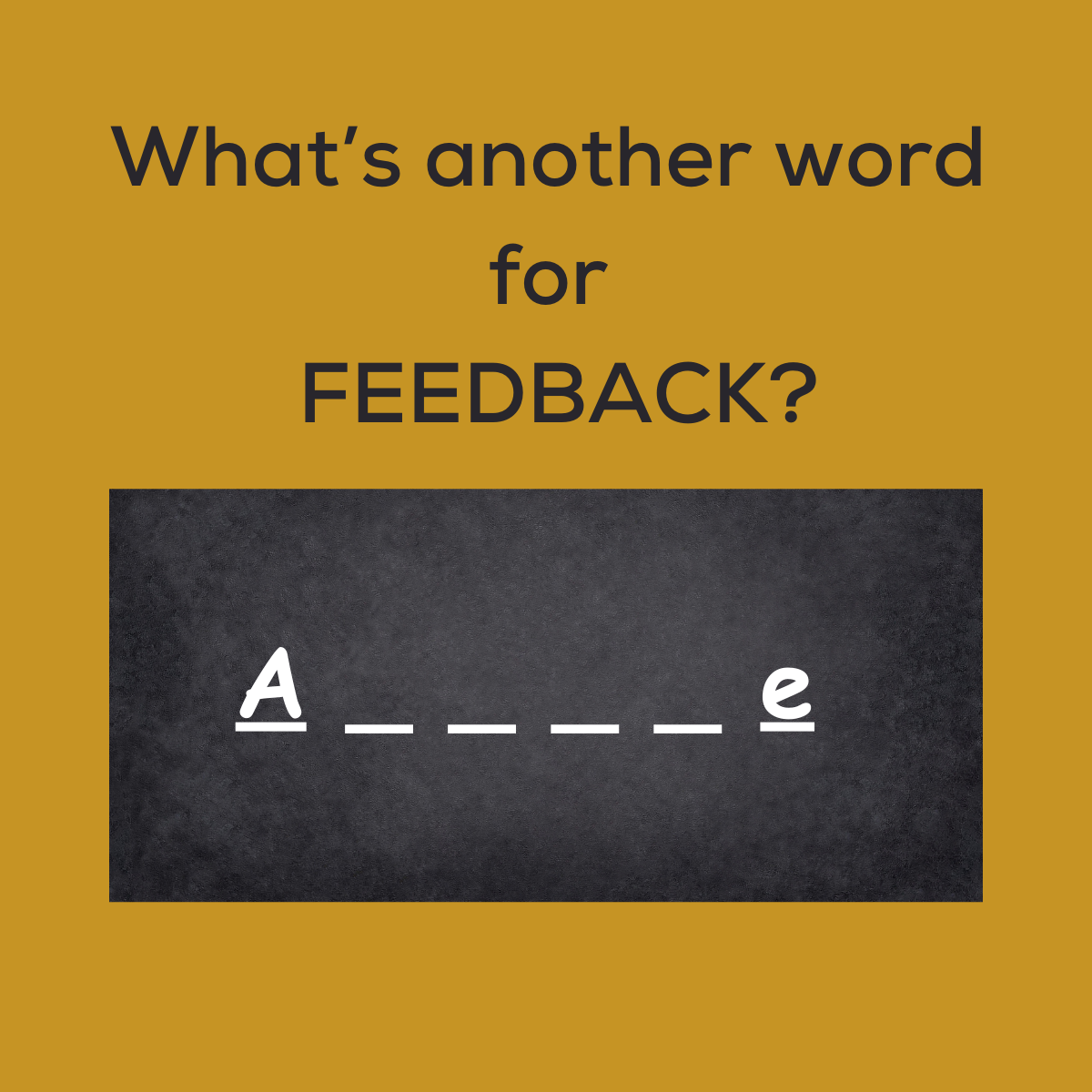
What’s another word for FEEDBACK?
No, not a fan of feedback; unless…it is all good!
When someone (boss, colleague, spouse, even a friend) offers to give me feedback, I gird myself. Fear is my instant response; I feel angst in my gut! I put on a ‘yes I am ready’ face and demonstrate that I am listening. Cortisol is pulsing through my nervous system, I’m not listening well, I am defending myself, quietly; I am in a defensive position, not taking in the ideas that might be helpful to me. While I have described my own reaction to ‘feedback’ above. I am by no means in the minority.
So, what are you supposed to do as a leader? How do you get through to people who don’t, or can’t take your advice? Let’s use that word advice, because that is what it feels like, and no nobody wants advice, unless…
…They ask for it!
This is the ‘moment’ you want to watch for. If you are a parent, you call it the ‘teachable’ moment. In a work setting, I call it a “ready to receive” moment.
The way to trigger a ‘ready to receive’ moment is to ask questions. Not veiled questions that have an implied answer or expectation like… “Can I give you some feedback?”.
Instead ask open-ended, curiosity questions. The questions you ask will of course be dependent on the situation. Keep those questions open-ended; questions to which you do not know the answer and are truly curious to know the other person’s perspective.
Here are a few general questions to get you started.
- What did you have in mind when you chose that approach/idea/outcome?
- How happy/satisfied/proud are you with the results of this issue/project?
- What would you change if you were to do it again?
- How can I help with this/that?
- What does success look like to you?
Recognizing what it feels like to be in a curious state of mind guides you to notice what it feels like when others have an open mindset. It is a green light indicating ‘ready to receive’.
Take notice what curiosity feels like. You can get into a curious state of mind by simply vocalizing ‘hmmm’. Try it, right now! Hmmm…?
Now you can have a conversation, a dialogue about what success or accomplishment looks like.
When the intention of feedback is to add ideas to make something or someone even better, a dialogue between two open and curious people is a powerful ‘sage’ conversation. If feedback is a veil to disguise that you want to give someone advice to fix, correct or reprimand them, the conversation is not a dialogue, it is a demand.
There are times in an employer/employee relationship where a performance gap needs to be addressed. I won’t call it feedback either. Find out the strategy and word I use for that type of conversation in next week’s Sandbox!
